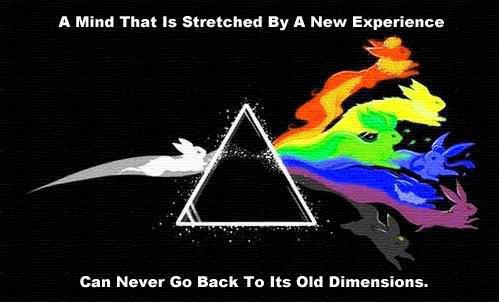If you don´t see yourself as part of the problem, you cannot be part of the solution.
Every culture teaches this through a similar story. Joseph Campbell, anthropologist and advisor for Star Wars, called it “The Hero with a Thousand Faces.” The hero starts his journey feeling at the mercy of external circumstances. By the end, he realizes he is in control of his destiny. He knows that he can choose how to behave, learn and grow.
Teaching accounting at MIT, I saw how numbers shape perceptions. Coaching leaders all over the world, I learned how stories shape lives. Good stories inspire you; bad stories disempower you. The worst stories are the ones that have you as a victim.
Heroes are not just mythical characters. They are examples of you at your best. Here are five suggestions to always remember who you are.
1. No problem — Take the challenge
There is no such thing as a problem. What you call “a problem” is not a thing independent of you, but a situation you don´t like. It is “a problem for you.” To deal with it more effectively, put yourself in the picture. Think of it as your challenge. Take the difficulty as an opportunity to show your true colors.
I often catch myself saying, “the real problem is…” followed by the thought, “…that you don´t agree with me!” Equally often, my counterpart argues that “the real problem is…” that I don´t agree with him. Unless we recognize and give up these bad stories, we will each push hard to overcome the other. Push versus push equals stuck: a very expensive stalemate where we both spend tremendous energy for no result.
2. Drop “Who’s responsible?” – Be response-able
You didn’t do it. So what? You are suffering from it. People and things are out of control. It is tempting to blame them and play the part of the innocent victim. Don’t. The price of innocence is impotence. That which you blame you empower. Become the hero of the story; focus on what you can do to respond to your challenge.
The inspiring question is not, “why is this happening to me!” but “what is the best I can do when this happens?”
I once coached a financial services executive who would always blame external factors: regulation, competition, the economy, his employees, his boss, his peers. All these forces did impinge on his goals. It was the truth, but not the whole truth. The truth that he refused to accept, the one that blocked his growth, was that he was able to respond to these forces.
3. Forget what you don´t want – Focus on what you want.
Consider an issue that troubles you. What would you like to have happen? I ask this every time I coach. Infallibly, I learn what my client would like to not have happen anymore. This is a bad end for a hero´s journey. Avoiding what you don´t want will take your energy away from achieving what you do want.
Your brain doesn’t compute “no”. What you try to avoid you unconsciously create. If you don´t believe this, try to not think of a white bear right now and notice where your mind goes. Define a positive outcome precisely. Ask yourself, “What do I really want?” and visualize it in as much detail as you can. This will force you to put some flesh on the conceptual bones. Furthermore, ask yourself, “How would I know that I got what I wanted? What would I see? What would I feel?” In this way you will be sure that your vision has observable standards by which to measure success.
4. Take one eye off the ball – Go for the gold.
It’s not about hitting the ball; it’s about winning the game. Set your mind on what you are ultimately trying to achieve. Build a chain from means to ends, taking you from getting the job, to advancing your career, to feeling professionally fulfilled, to being happy. The ultimate goal and measure of success is happiness.
“What would you get, if you achieved X, which is even more important to you than X?” Ask yourself this question and discover that you never ask for what you really want—and neither does anybody else. We all ask for what we think is going to give us what we really want. Have you ever bought set of golf clubs hoping they would make you play better? And what would you get, if you played better, which is even more important to you than playing better?
5. Failure is not an option – Succeed beyond success.
Commit fully to achieve what you really want. Know that you deserve it and give it your best. This will make you more likely to get it. Success, however, is not the most important thing. To be a hero, pursue your goal ethically, as an expression of your highest values. Success may give you pleasure, but integrity leads to happiness.
Don’t aim at success–the more you aim at it and make it (your final) target, the more you are going to miss it. For true success, like happiness, cannot be pursued; it must ensue, and it only does so as the unintended side effect of one’s personal dedication to a cause greater than oneself. Listen to what your conscience commands you to do and carry it out to the best of your knowledge.” — Viktor Frankl, Man’s Search for Meaning.
Questions for Readers
How is life challenging you to be a hero right now? What values would you have to express to be proud of yourself regardless of the outcome?
(Source: Linkedin post by Fred Kofman Director at Conscious Business Center)

